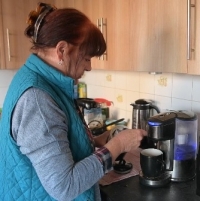Universal Credit Is Coming Under Enormous Criticism
Sunday 29 October, 2017 Written by Simon Collyer
Thousands of people in Swansea could be “plunged into debt” when universal credit replaces their current benefit arrangements, according to the leader of the council.
A worried Rob Stewart fears homelessness could rise, and wants people affected by the new payment system to consider using a credit union to help manage their money.
Universal credit is gradually replacing six existing means-tested benefits. It is intended to simplify the benefit system and improve work incentives, and comes into force in Swansea in December on a phased basis.
A report commissioned by the council has estimated that 16,770 households in the city will be affected by universal credit, which is paid in arrears.
If the new system was introduced now, the report said:
9,300 households would have a lower benefit entitlement under universal credit and would need “transitional protection” payments
3,666 households would have a higher income under universal credit
3,804 households would see no change in entitlement.
The headline statistic ringing alarm bells in the Guildhall is that the disposable income of working-age households who receive benefits would fall by an average of £46 per week by 2020 compared to now. This £46 figure takes into account rising inflation and expected rent rises.
These trends would push an increasing proportion of Universal credit recipients into the worse-off bracket, notwithstanding rises in the national living wage and an increase in the personal allowance threshold before which tax is deducted from earners.
“I think people have an idea that universal credit is coming,” said Mr Stewart. “Some people think the changes are already in place. But I think they will be shocked and surprised.
“The majority of changes are still to come into force. The impacts will be felt everywhere in Swansea, but will be greatest in the east.
“We are really concerned that we are going to see people plunged into debt in numbers not seen before, and an upsurge in people seeking help from food banks.”
Mr Stewart said the council wanted to help people in need, for example those who might struggle to manage rent payments which previously went straight to their landlord.
“We would take a considered approach to (housing) evictions,” said the Labour leader. “We can get advice services to help stop people falling into debt.”
Asked if he feared homelessness would rise in Swansea, he replied: “That is a real concern for us. It is happening elsewhere. Swansea is not immune.
“The council is acting as a safety net, and we will continue to do that. My concern is the net might not be big enough.”
He said Swansea’s two credit unions, Celtic Credit Union and My Community Bank, were good options for managing finances and paying off short-term debts.
The report by Policy in Practice said the reform of welfare was a complicated subject. Changes to the amount that households can earn before claiming a benefit called tax credit are key to the universal credit number-crunching.
“The result is that universal credit will in most cases be less generous than the current tax credit system overall,” said the report. “The impact of universal credit is complex, and the winners and losers will depend upon the level of earnings, and household type.”
It concluded that the impact by 2020 “portrays an alarming picture” for Swansea residents, adding that the council “will have to support many people who will be negatively affected by a combination of reforms”.
One element of universal credit — a wait of six weeks for the first payment — was roundly denounced at a Swansea Council meeting on Thursday, where all parties put their names to a motion calling upon the UK Government to pause, rethink and fix the new system.
Labour councillor Jen Raynor said universal credit would drain money out of the Swansea economy.
“It should not only be delayed, it should be stopped,” she said.
Consumer charity Citizens Advice has previously warned that universal credit was “a disaster waiting to happen”, undermining its good intentions.
Its analysis for people trialling the new system found that 79% of people had rent, council tax or energy bill debts, compared to 69% previously.
Citizens Advice chief executive Gillian Guy urged Westminster leaders to reduce the six-week wait for the first payment.
She said: “While the principles behind universal credit are sound, our evidence shows that if the Government continues to take this stubborn approach to the expansion of universal credit, it risks pushing thousands of families into a spiral of debt, and placing an even greater strain on public services.
“People face severe consequences, like visits from bailiffs and eviction, when they can’t pay their bills.”
This week she welcomed a House of Commons committee’s call to cut the six-week wait to four weeks.
“Any reduction to this period would be good news,” she said.
ABC Note: Labour are talking about 4 billion increase on welfare spending but the government has cut 15 billion pounds.
Leave a comment
Make sure you enter all the required information, indicated by an asterisk (*). HTML code is not allowed.
Join
FREE
Here










